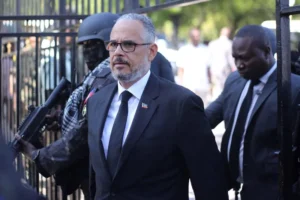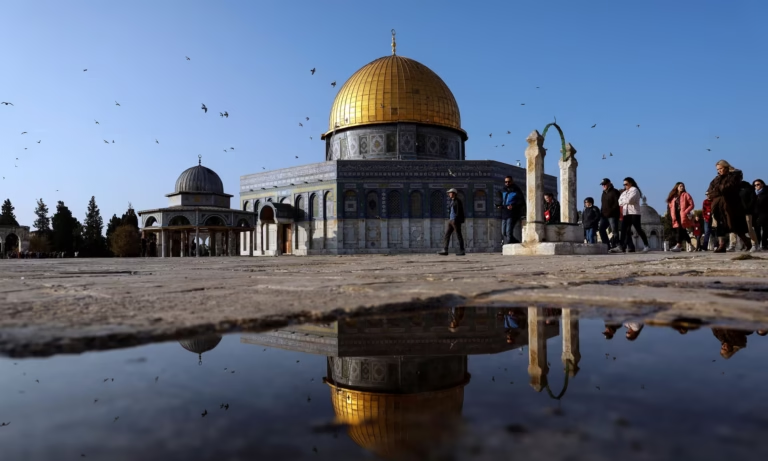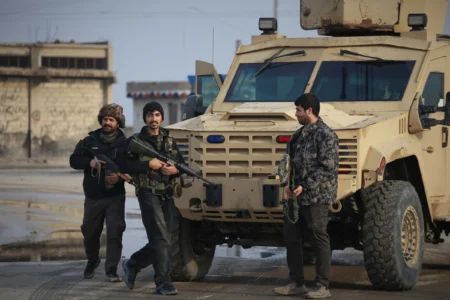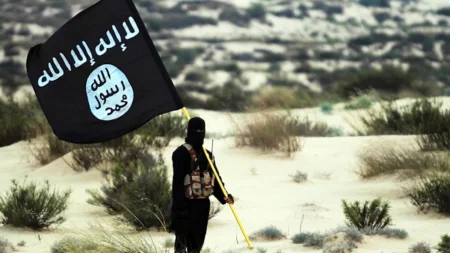For the first time, Israel has allowed Jewish settlers to dance, sing, and walk freely inside the Al-Aqsa Mosque compound. This area is considered the third holiest site in Islam. The decision is part of a new policy introduced by Israel’s National Security Minister.
Local media confirmed the news on Thursday. The report said that the approval was given under a new directive from the far-right minister. He is a leading member of the ruling coalition and is known for his hardline views. The minister also heads the ministry overseeing internal security and police matters during Israel’s wartime government.
According to reports, several Jewish religious groups met with the minister about three weeks ago. They asked for greater access rights to the compound. After this meeting, the minister approved their request. He also expressed a desire to hear the sound of music across the compound.
This new policy is a major shift from earlier rules. Strict laws had previously limited non-Muslim activity in the area. Dancing and singing by non-Muslim groups were especially forbidden due to the site’s religious importance to Muslims.
The change allows Jewish visitors from West Bank settlements to gather in the compound. They can now take part in what is being described as “unrestricted movement” and cultural expression. These actions were earlier considered violations of established religious boundaries.
The Al-Aqsa Mosque is located in East Jerusalem. It has been a flashpoint in the Israeli-Palestinian conflict. Both Muslims and Jews consider the area holy. Muslims know the site as Haram al-Sharif. Jews refer to it as the Temple Mount.
Any shift in access rules at the compound can lead to major unrest. In the past, such moves have triggered violent protests and increased regional tensions. This latest change is expected to face strong opposition from Muslim leaders and local communities.
Under international law, East Jerusalem is considered occupied territory. Most countries do not recognize Israeli control over the area. Any action seen as altering the status quo at religious sites is often criticized.
The minister behind the decision is also a known advocate for Jewish settlements in Palestinian territory. His political party has often pushed for greater Jewish presence in contested areas. His critics say the latest move is an attempt to further that agenda.
Human rights groups and Palestinian leaders have condemned the decision. They say it breaks past agreements and threatens religious peace. Some fear it could lead to more restrictions on Muslim worshippers.
The decision was not publicly debated before being implemented. It also did not involve consultation with religious leaders from the Muslim community. This has raised questions about the government’s motives and respect for religious traditions.
Observers worry the move may be used as a test case for future changes. If allowed to continue, it could alter the entire access structure of the compound. That may provoke a sharp backlash both locally and across the Muslim world.
While Jewish groups celebrated the decision, many others warned of its possible consequences. Analysts say the situation at Al-Aqsa is always sensitive. Any action that disrupts the delicate balance can easily spark wider unrest.
Calls have already begun for international organizations to respond. Many want outside pressure to stop further changes. They argue that peace in the region depends on protecting all religious rights equally.
The new policy has not yet been written into formal law. However, the fact that it was allowed by the security ministry gives it strong political weight. It shows a clear shift in how the current Israeli government views control over sacred sites.
In the coming days, increased police presence is expected at the site. Authorities are preparing for possible protests or pushback. Security forces have been told to remain alert.
This controversial move comes at a time when tensions in the region are already high. With ongoing conflict and political unrest, the Al-Aqsa decision may further complicate peace efforts.
International reactions are still forming. However, many expect global Muslim communities to speak out soon. The situation will be closely watched by both political and religious observers around the world.







